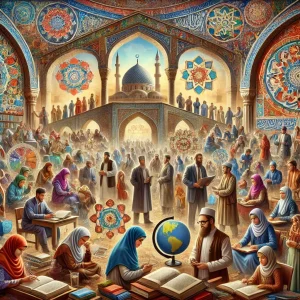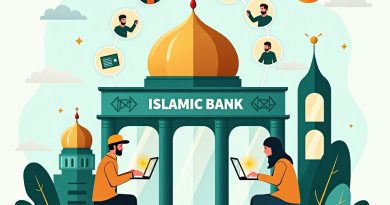Multicultural Education: The Foundation of Inclusive Islamic Civilization

By Dr. Abdul Wadud Nafis, LC., MEI
Islam came as a mercy to the entire universe, teaching the importance of appreciating diversity. In a world that is increasingly complex and plural, multicultural education has become an urgent need to build a peaceful, just, and civilized civilization. Through this education, Islam teaches tolerance, brotherhood, and justice in social life, creating harmony amidst existing differences.
Multicultural education plays a crucial role in building an inclusive, peaceful, and civilized Islamic civilization. Islam, as a religion of mercy for all the worlds (rahmatan lil ‘alamin), places diversity as part of God’s natural law (sunnatullah). In the current global context, multicultural education becomes a solution to nurture tolerance, appreciate differences, and create harmony in a plural society. Here are some urgencies of multicultural education in building Islamic civilization:
1. Instilling the Values of Tolerance and Brotherhood
Multicultural education teaches the values of tolerance in line with Islamic teachings. By appreciating differences, Muslims can build universal brotherhood (ukhuwah insaniyah), which serves as the foundation of a civilized society.
2. Reducing Conflict and Creating Peace
In diverse societies, conflicts often arise due to ignorance and negative prejudices. Multicultural education can reduce conflict by fostering a deep understanding of other cultures, religions, and traditions.
3. Shaping Inclusive and Humanistic Character
Multicultural education shapes individuals who are inclusive and humanistic, capable of respecting the rights of others, regardless of ethnicity, religion, and culture. This reflects Islam’s teachings on justice and equality.
4. Strengthening Islam’s Universal Identity
Islam teaches that all humans originate from a single ancestor, Prophet Adam. Multicultural education strengthens Islam’s universal identity and rejects exclusivist attitudes and discrimination against other groups.
5. Realizing a Civilized Islamic Civilization
A progressive and civilized Islamic civilization can only be realized if its society can live harmoniously amidst diversity. Multicultural education is an essential tool in building a civilized society, as exemplified by Prophet Muhammad SAW in the Medina Charter.
Conclusion
Multicultural education is an urgent need in building a peaceful, inclusive, and advanced Islamic civilization. By understanding and appreciating diversity, Muslims can strengthen a civilization based on the values of justice, equality, and universal brotherhood as taught in Islam.
Multicultural education is the key to building an inclusive and civilized Islamic civilization. By respecting differences, Muslims can create a peaceful, tolerant society founded on the values of justice. Only with an open attitude toward diversity can Islamic civilization continue to be relevant and bring mercy to all of humanity.
References
1. Banks, James A. Multicultural Education: Issues and Perspectives. New York: Wiley, 2019.
2. Gorski, Paul C. Multicultural Education: A Teacher’s Guide to Linking Context, Process, and Content. New York: Routledge, 2021.
3. Hanapi, Mohd Shukri. Islamic Civilization and Multicultural Society: Historical Perspectives. Kuala Lumpur: IIUM Press, 2018.
4. Nasr, Seyyed Hossein. Islam and the Plight of Modern Man. London: Longman, 1988.
5. Parekh, Bhikhu. Rethinking Multiculturalism: Cultural Diversity and Political Theory. London: Palgrave Macmillan, 2006.
6. Quraishi, Muhammad. Islam dan Pendidikan Multikultural: Membina Toleransi dalam Keberagaman. Jakarta: Gramedia Pustaka Utama, 2017.
7. Rahim, Arifin M. Pendidikan Multikultural dalam Perspektif Islam. Yogyakarta: UII Press, 2019.
8. Shihab, M. Quraish. Islam yang Saya Pahami: Moderasi, Toleransi, dan Peradaban. Bandung: Mizan, 2018.
9. Woodward, Mark R. Islam in Java: Normative Piety and Multicultural Tradition. Tucson: University of Arizona Press, 1989.
10. Zuhdi, Muhammad. Pendidikan Islam dan Multikulturalisme. Jakarta: Rajawali Press, 2020.

